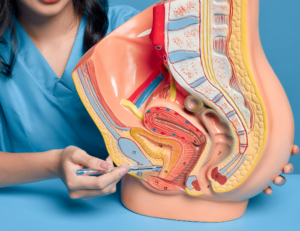The pregnancy experience is different for each and every woman, but one procedure almost all pregnant women go through is an ultrasound. Ultrasounds are performed at various points throughout a pregnancy to ensure proper fetal development and health. Pregnant women typically have three ultrasounds throughout the duration of their pregnancy — one during each trimester. Here’s a bit more information about what each of these three ultrasound procedures entail as well as their purpose.
First Trimester Ultrasound
Women usually have their first ultrasound between six and eight weeks into their pregnancy. Clearly, the fetus is very small at this point, and since your uterus and fallopian tubes are in closer proximity to your birth canal than your abdomen, this first ultrasound is usually performed transvaginally so that your OBGYN can get a clearer image. During this test, your gynecologist will listen to your baby’s heartbeat and estimate its age. You may not be able to see much at this point, but by the 13-week period, your womens health professional should be able to provide a clearer photo.
Second Trimester Ultrasound
The second ultrasound is typically performed when you’re between 18 and 20 weeks pregnant. This procedure is more technically known as an anatomy scan, simply because it is a bit more involved than the previous procedures. OBGYN specialists will examine the baby’s growth and ensure that their organs are developing properly. While you’ll be able to see your baby’s organs in detail, it may be difficult for the untrained eye to decipher between them, so ask your womens health care professional to point them out. This test doesn’t hurt, but the gel used may be a bit cold and messy. This is the most in-depth checkup your baby will have before you give birth.
Third Trimester Ultrasound
Many pregnant women have their last ultrasound at the 20-week point, which is the anatomy scan. But some women still prefer to have an ultrasound during their third trimester. Fertility starts to decline for women from about the age of 30, dropping down more steeply from the age of 35. And in fact, your OBGYN may recommend it if you’re over the age of 35, have a family history of pregnancy complications, or you’re experiencing pre-term contractions. Don’t hesitate to request a third trimester ultrasound if you have any doubts or concerns.
Going through a pregnancy is a different experience for every woman, but understanding this common procedure can help put you at ease when it’s time to schedule yours. For more information about womens health, contact WomanCare PC.








